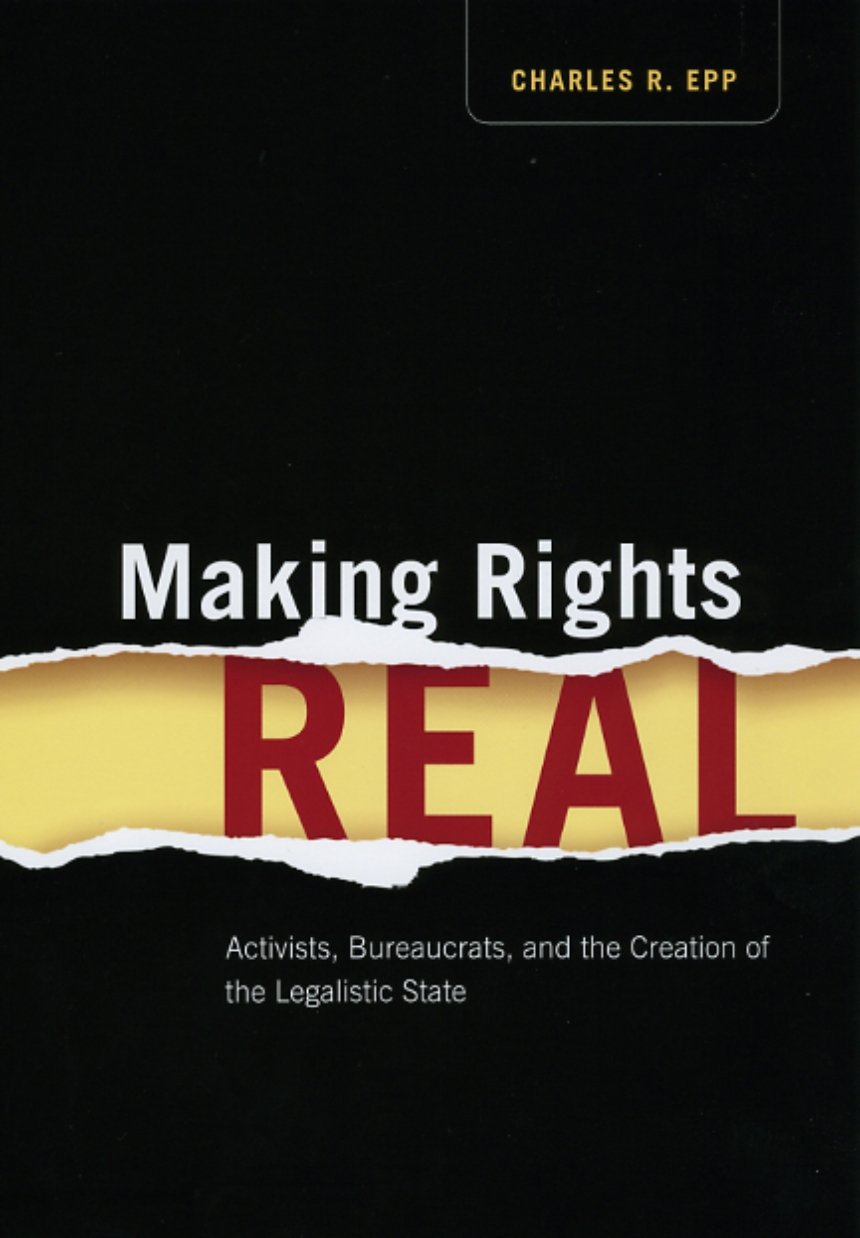Making Rights Real
Activists, Bureaucrats, and the Creation of the Legalistic State
Making Rights Real
Activists, Bureaucrats, and the Creation of the Legalistic State
It’s a common complaint: the United States is overrun by rules and procedures that shackle professional judgment, have no valid purpose, and serve only to appease courts and lawyers. Charles R. Epp argues, however, that few Americans would want to return to an era without these legalistic policies, which in the 1970s helped bring recalcitrant bureaucracies into line with a growing national commitment to civil rights and individual dignity.
Focusing on three disparate policy areas—workplace sexual harassment, playground safety, and police brutality in both the United States and the United Kingdom—Epp explains how activists and professionals used legal liability, lawsuit-generated publicity, and innovative managerial ideas to pursue the implementation of new rights. Together, these strategies resulted in frameworks designed to make institutions accountable through intricate rules, employee training, and managerial oversight. Explaining how these practices became ubiquitous across bureaucratic organizations, Epp casts today’s legalistic state in an entirely new light.
368 pages | 17 line drawings, 4 tables | 6 x 9 | © 2009
Chicago Series in Law and Society
Law and Legal Studies: Law and Society
Political Science: Judicial Politics, Public Policy
Sociology: Formal and Complex Organizations
Reviews
Table of Contents
List of Figures
List of Tables
List of Narratives
